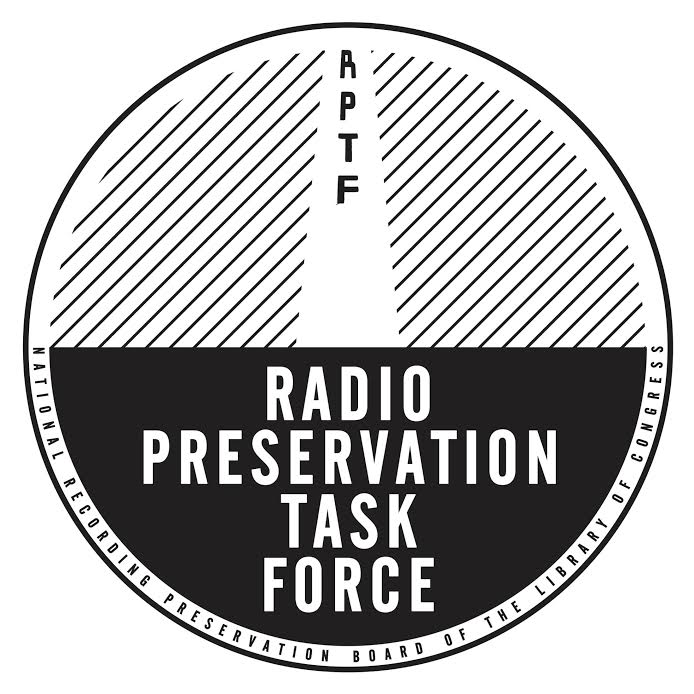Conference Announcement: Saving America’s Radio Heritage at the Library of Congress

Post by Michele Hilmes, Professor Emerita at University of Wisconsin-Madison
The Radio Preservation Task Force (RPTF), a unit of the Library of Congress’s National Recording Preservation Board, will hold its first national conference February 25-27, 2016, in Washington, D.C.
Keynote speakers will include Professor Paddy Scannell of the University of Michigan, a noted radio scholar and historian, and Sam Brylawski, former Head of the LOC’s Recorded Sound Division and a digital recording pioneer.
In 2014, the National Recording Preservation Board recognized the need to address the perilous state of the nation’s radio heritage, which has not received the archival and critical attention of other U.S. media. Over the last two years, the RPTF has coordinated a nation-wide effort to identify major collections of radio recordings and other materials that will help to raise cultural awareness of America’s rich tradition of radio-based soundwork and make it accessible to future generations.
A year and a half later, we have built an organization consisting of more than 130 media studies scholars actively engaged in researching radio’s past and identifying key archival sources; over 350 affiliate archives, collections, and radio producing organizations across the US and Canada; and a growing number of online partners who aid in critical discussion and dissemination of our efforts.
The most recent additions to our group of affiliated organizations include NPR, the Pacifica Radio Archives, the Smithsonian Center for Folklife and Cultural Heritage, the Association for Cultural Equity/Alan Lomax Archive, the Paley Center for Media, the Prometheus Radio Project, the Media Ecology Project, the Studs Terkel Archive, and the Third Coast International Audio Festival.

The Library of Congress Packard Campus of the National Audio-Visual Conservation Center located in Culpeper, VA.
Our first national conference, Saving America’s Radio Heritage, will bring these groups together, along with members of the broader academic, archival, media, and general public, to discuss what we have accomplished and plan for future activities. Over three days in February, we will tour the LOC’s Packard Center, meet for a day of panels focused on radio’s history and cultural significance at the LOC’s Madison Building, then move to the University of Maryland’s Center for Mass Media and Culture (formerly the Library of American Broadcasting) for a second day of workshops and caucuses focused on issues of outreach, growth, and education.

The Radio Preservation Task Force curates a regular series for Antenna about radio history and archival issues, which can be accessed here. More information about the RPTF can be found at the organization’s new website. Stay tuned for further news and discussion of the conference and the RPTF’s activities. For additional information about the task force, please contact: radiotaskforce <at> gmail.com. Questions about strategic planning and partnerships can be directed to the RPTF’s National Research Director, Josh Shepperd (Catholic University): shepperd <at> cua.edu.



[…] Michele Hilmes, Professor Emerita at University of Wisconsin-Madison, reports at the Antenna blog that the Radio Preservation Task Force, a unit of the Library of Congress’s National Recording Preservation Board, holds its first national conference February 25-27, 2016, in Washington, D.C. Professor Paddy Scannell of the University of Michigan, and Sam Brylawski, former Head of the Library of Congress’s Recorded Sound Division, are among the keynote speakers. The National Recording Preservation Board began in 2014 coordinating, “a nation-wide effort to identify major collections of radio recordings and other materials that will help to raise cultural awareness of America’s rich tradition of radio-based soundwork and make it accessible to future generations.” The group now includes more than 130 media studies scholars and over 350 affiliate archives, collections, and radio producing organizations across the U.S. and Canada. NPR, the Pacifica Radio Archives, the Smithsonian Center for Folklife and Cultural Heritage, the Association for Cultural Equity/Alan Lomax Archive, the Paley Center for Media, the Prometheus Radio Project, the Media Ecology Project, the Studs Terkel Archive, and the Third Coast International Audio Festival, are among the involved. […]